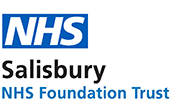

Modern Slavery and Human Trafficking Statement
This statement is made pursuant to section 54(1) of the Modern Slavery Act 2015. It serves as Salisbury NHS Foundation Trust’s (SFT) official statement on slavery and human trafficking for the financial year ending 31 March 2025.
In line with NHS England’s Group Statement on modern slavery and human trafficking, this document outlines the steps SFT has taken — and continues to take — to prevent modern slavery and human trafficking within the Trust and its supply chains.
SFT provides a wide range of clinical services to a population of over 270,000 people across Wiltshire, Dorset, and Hampshire. Our core business is the provision of acute and specialist healthcare, supported by a complex supply chain essential for delivering high-quality patient care.
Our supply chains include the procurement of:
Modern slavery encompasses slavery, servitude, human trafficking, and forced labour. SFT adopts a zero-tolerance approach to all forms of modern slavery. We are committed to acting ethically and with integrity in all our business dealings. We recognise our responsibility to understand the risks within our supply chains and to work collaboratively to mitigate them — including with partners in the Bath and North East Somerset, Swindon and Wiltshire Integrated Care System (BSW ICS).
We are committed to ethical practices and take all reasonable steps to prevent modern slavery and human trafficking across our operations and supply chains. Our policies are designed to meet the diverse needs of our patients, staff, and wider community, while ensuring our suppliers uphold the same values.
Our Procurement Policy includes specific clauses requiring compliance with the Modern Slavery Act 2015. Awareness of modern slavery is embedded within our safeguarding policies, and all staff are required to report any concerns, which are addressed through appropriate procedures.
This commitment is reflected in the following key Trust policies:
To identify and mitigate risks in our operations and supply chains, we have implemented a comprehensive due diligence framework. This includes:
SFT employs a data-driven, risk-based approach to modern slavery risk within its supply chains.
The Procurement team uses the national Atamis platform to assess the risk level associated with different spend categories — classified as high, medium, or low. Where risks are identified, the team uses the Evergreen Portal to determine whether suppliers have completed the Modern Slavery Risk Assessment Tool (MSRAT). Responses are used to guide follow-up actions as part of contract management.
Contract management is currently being implemented, with an initial focus on our “Gold” tier suppliers — contracts with high risk, complexity, or value.
As part of our tender process, suppliers for contracts exceeding £139,000 must confirm whether they have a Modern Slavery Act Statement. This requirement is built into our standard contract terms and conditions.
SFT is dedicated to monitoring the impact of its actions through clearly defined key performance indicators.
A key KPI that the Trust is working towards is to ensure that at least 90% of staff complete the mandatory Level 1 Adult Safeguarding Training, which includes modern slavery awareness.
All members of the Safeguarding Team complete Level 3 training. Level 1 training is required only for non-patient-facing staff, while all patient-facing staff are required to complete Level 2 training.
A broader KPI framework is in development. Over the coming year, we will define and implement new indicators to improve tracking, accountability, and continuous improvement.
The rollout of Atamis will further strengthen our oversight, allowing enhanced visibility of modern slavery risks across procurement categories and supporting data-driven supplier engagement and contract management.
All staff have a personal responsibility to help prevent modern slavery and human trafficking. Guidance and training are provided through our safeguarding framework and are accessible to all staff.
6.1 Mandatory Training for All Staff
Modern slavery awareness is part of the Level 1 Adult Safeguarding Training and includes:
6.2 Ongoing Resources
Resources available via the Trust’s intranet include:
6.3 Procurement Team Training
In 2025/26, the Procurement team will continue promoting ethical practices by:
Confirmation
This statement has been reviewed and approved by the Trust's Board of Directors
It will be reviewed and updated annually in line with our legal obligations and ongoing commitment to preventing modern slavery and human trafficking.
4 September 2025
Our staff at Salisbury District Hospital have long been well regarded for the quality of care and treatment they provide for our patients and for their innovation, commitment and professionalism. This has been recognised in a wide range of achievements and it is reflected in our award of NHS Foundation Trust status. This is afforded to hospitals that provide the highest standards of care.
